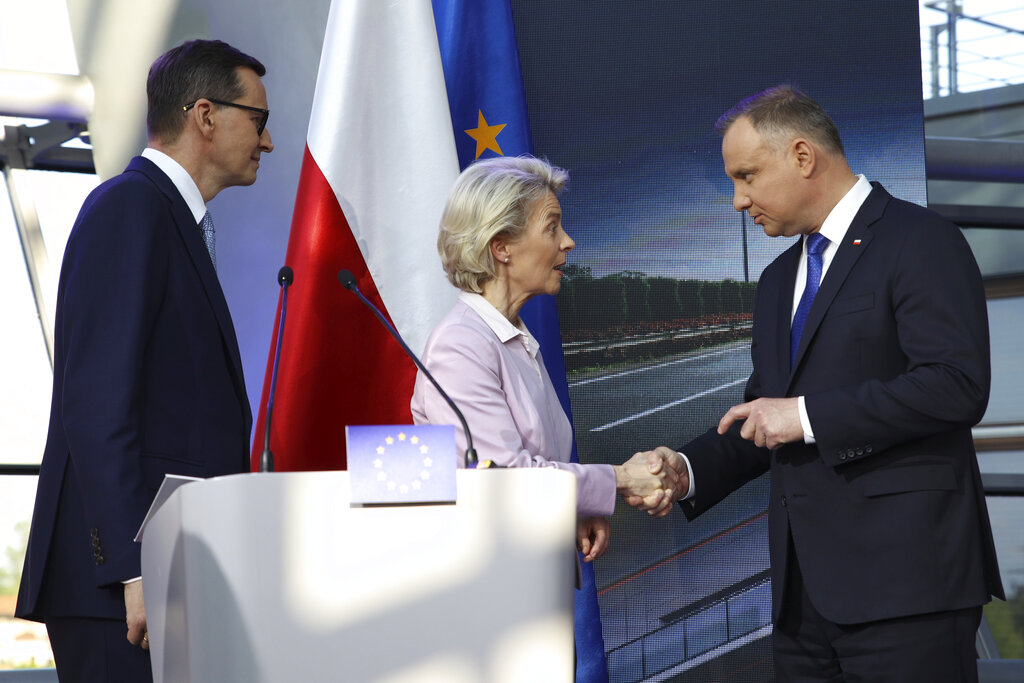Poland is currently being threatened with the loss of €110 billion worth of European Union funds due to various disputes with Brussels. Due to the worsening economic outlook, this reality means Poland has little option but to do what is necessary to secure this money, argues Professor Henryk Domańsk.
Although Domański argues that a solution must be found, he also said he recognizes that reaching an agreement with the EU commission will depend on internal politics within the ruling conservative coalition.
According to the professor, “the ruling bloc is torn between hawks and doves.” The “doves” are led by Prime Minister Mateusz Morawiecki, and the “hawks” are grouped around the “Solidarity Poland” faction, led by Justice Minister Zbigniew Ziobro.
Ziobro has argued that if Poland gives in to EU demands, including reversing the government’s efforts to reform the judicial system, then the EU will only make further demands and will restrict funding regardless of what Poland does. In such a scenario, the EU would be able to dictate what the Polish government can and cannot do regarding vital domestic policies, including related to other issues in the future. The same dilemma is being faced by Hungary, which is also threatened with billions in EU funding cuts over “rule of law” issues.
[pp id=52379]
A factor tying Poland’s hands in its dispute with the EU is that many Poles are putting money before politics, with polling showing that the vast majority of Poles do not want the government to pursue judicial reform if it threatens EU funding.
Prof. Domański argued that as long as Poland’s ruling party leader, Jarosław Kaczyński, supports the “doves” and his prime minister — and the European Commission is prepared for compromise — then an agreement is possible.
The professor acknowledges that some in the ruling bloc feel the European Commission is actually attempting to bring down the Polish government and wants the opposition to win the election. However, he says this is not the case in reality, since that would be a high-risk strategy for Brussels.
[pp id=53022]
First of all, because it is not certain that the liberals will win the election. Second, the decision on funding needs to be taken well before the election. Third, the EU is facing many problems such as the war in Ukraine, Hungary, and internal problems between the European Parliament and the Commission.
Domański said it is in the interest of the EU to avoid further crises rather than escalating them. He indicated that a policy of cutting off funds to governments the European Commission dislikes runs the risk of increasing Euroskepticism in those countries, which is not in the European Commission’s or in Germany’s interests, since Poland is an important trading partner.
According to him, the conflict is not in Poland’s interests either, and it needs to compromise. Neither side can expect unconditional surrender from the other. He feels that Poland will need to move on its judicial reform.
Domański said he is convinced it is in Poland’s national interest to find a way of reaching an agreement with the European Commission. He believes that this is also in the interest of the Zbigniew Ziobro’s “hawks” in the United Right, as should they block any such agreement, they would be condemned to political isolation, which is far too risky for them.
All of these factors mean, that in the end, the ruling conservative coalition will accept a compromise as long as some face-saving measures are included that allow them to continue to present themselves as politicians prepared to stand up to the EU.






